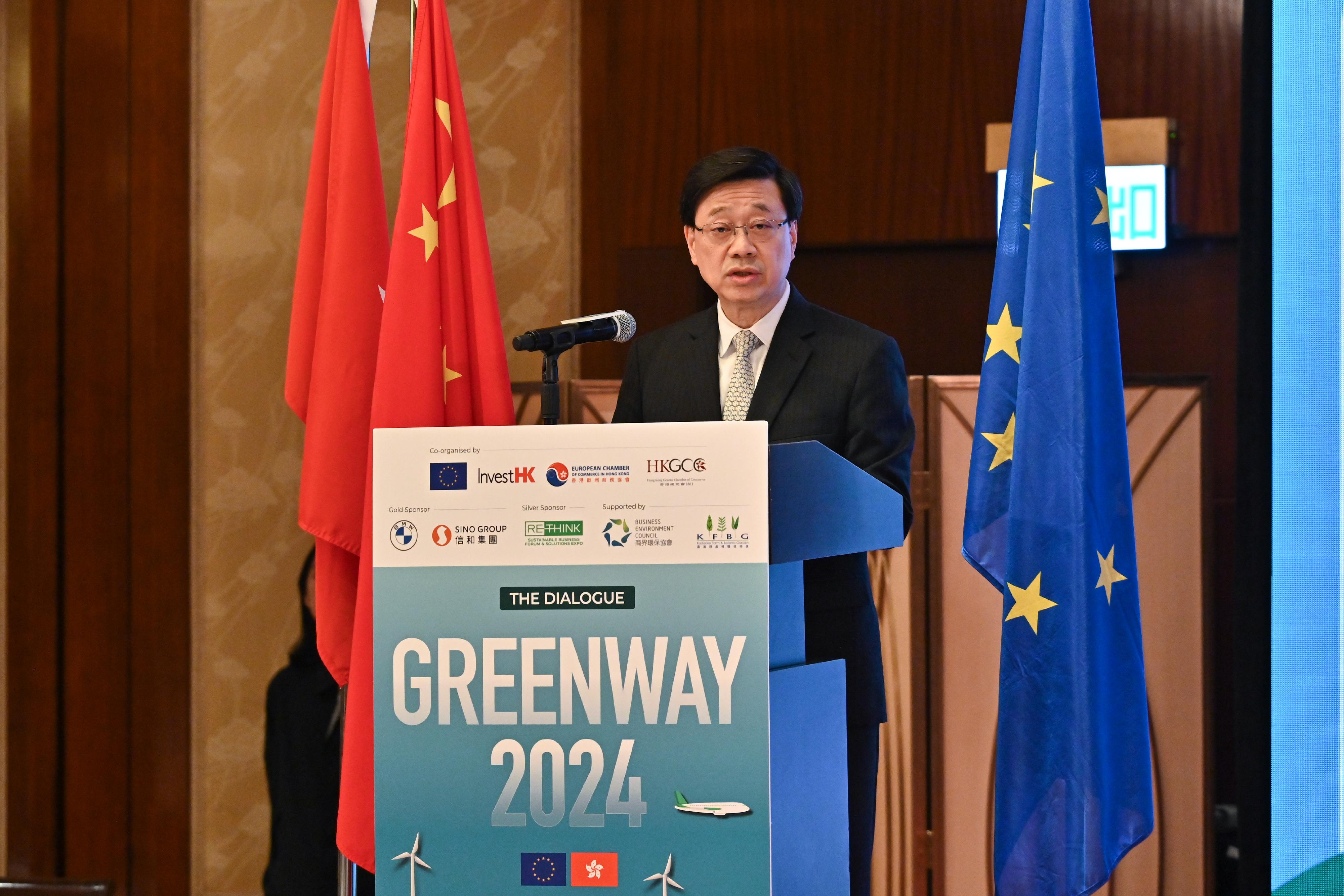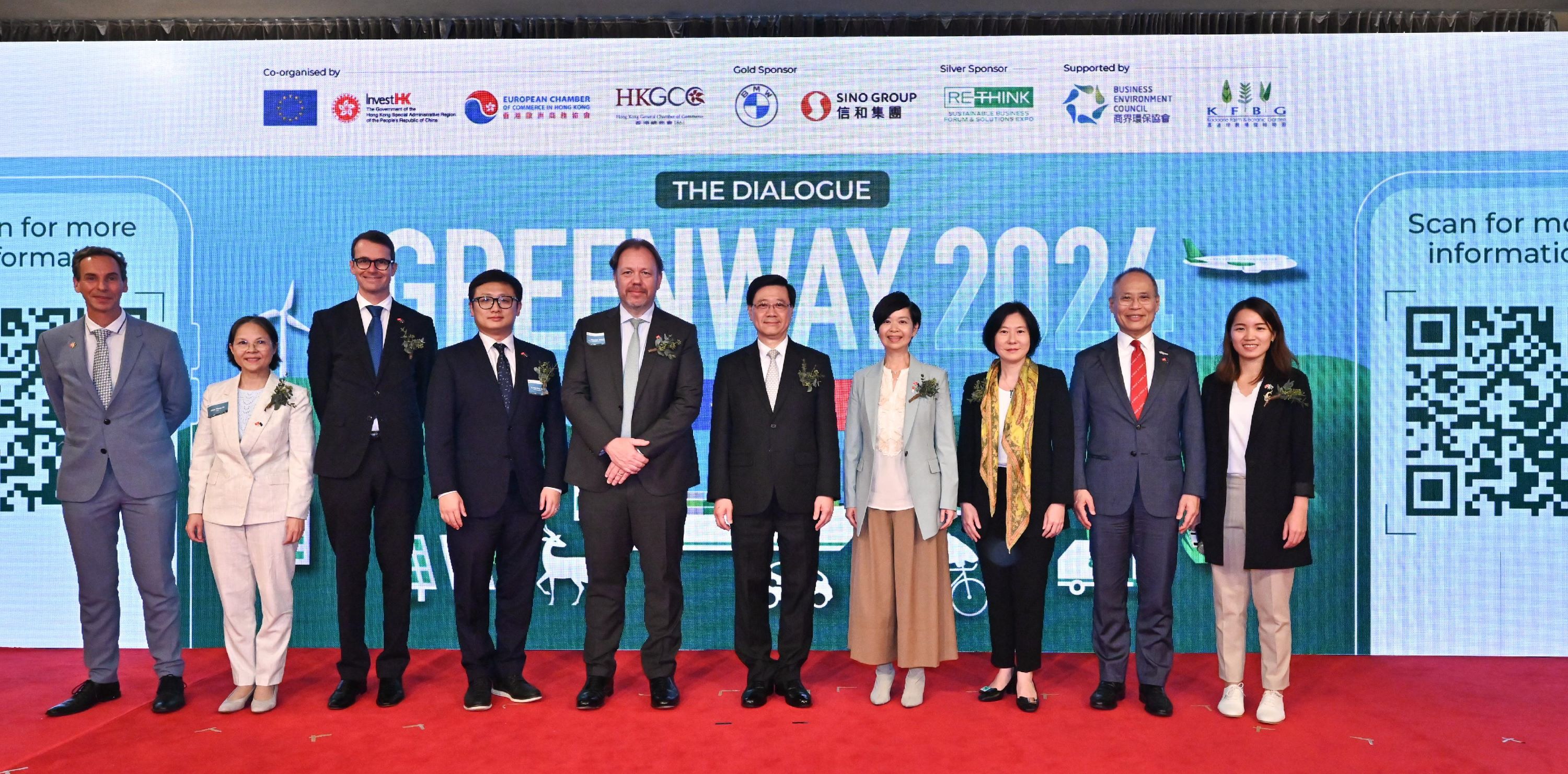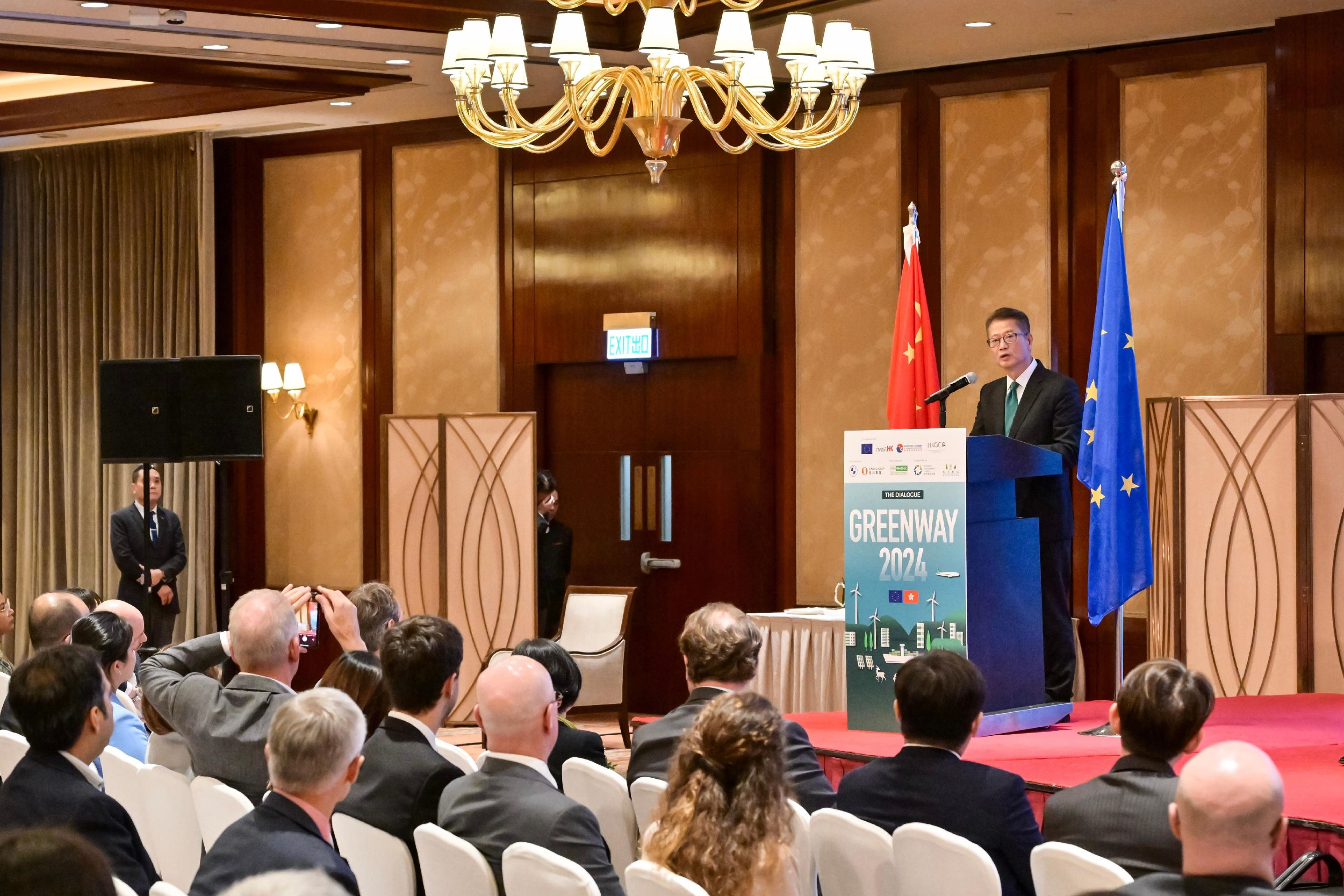
Hong Kong will continue to implement the decarbonization strategies set out in the Climate Action Plan 2050, focusing on reducing emissions from electricity generation, transport and waste.
Hong Kong Chief Executive John Lee Ka-chiu made the remarks at the Greenway 2024 The Dialogue, organized by the European Union Office to Hong Kong and Macao on Monday.
The conference is becoming an annual event at which Hong Kong and the EU engage in high-level and cross-sectoral dialogues on how to promote a greener and more-sustainable future.
READ MORE: Chan: HK has come a long way to achieve net-zero goal
“As Hong Kong is one of the first Asian cities to combat climate changes, the city clearly understands that it must take the lead to implement green transformation,” Lee said in his opening speech of the conference.
Identifying transition activities and setting reduction targets are important for making transition finance to become a mainstream financing activity.
Paul Chan Mo-po, Financial Secretary, HKSAR
“Last year was the warmest year on record in the world, and high temperatures continued in the first few months of this year,” the chief executive warned.
“Hong Kong’s carbon emissions peaked in 2014. Since 1997, the city stopped the construction of new coal-fired power plants, and gradually replaced them with natural gas and zero-carbon power sources for power generation. In 2022, the city’ per capita emissions dropped to 4.5 metric tons from 6.2 tons 10 years ago.”
As Hong Kong has pledged to be carbon-neutral by 2050, the government of Hong Kong Special Administrative Region will implement the decarbonization strategies set out in the Climate Action Plan 2050, he said.
According to the strategy, the government will cease using coal for daily electricity generation by 2035; promote electric vehicles; and achieve the goal of zero landfill use by 2035.
ALSO READ: Powering HK toward greener future
The chief executive also mentioned that Hong Kong is developing rapidly as an international green finance center, whereas the city’s green bond issuances accounted for one-third of the total Asian market.

The city two months ago also pioneered the debut of the world’s first-ever multicurrency tokenized green bond issuance, worth $6 billion.
As innovative technology plays a pivotal role in achieving carbon neutrality, the government has allocated HK$400 million ($51.1 million) to the Green Tech Fund, to support research and development of various decarbonization projects, including green hydrogen production and construction materials, and noise-absorbing meta-materials using recycled plastic.
To date, the fund has supported 30 projects, whereas the next stage will focus on promoting the projects’ practical application and commercialization.

At the summit, Hong Kong Financial Secretary Paul Chan Mo-po said Hong Kong Investment Corp Ltd, which manages government funds to attract strategic companies and support tech innovation in Hong Kong and Guangdong-Hong Kong-Macao Greater Bay Area, will implement the first batch of its direct investment and co-investment projects in the first half of this year, covering green technology and finance.
The finance chief also said the administration has been developing a Hong Kong green taxonomy that aligns with the Common Ground Taxonomy by China and the EU, covering 12 economic activities across power generation, transportation, buildings, and water and waste management that contribute to climate change mitigation. Phase One of the taxonomy will be published soon.
READ MORE: More application scenarios sought for HK green startups
“That is why, in the next phase of the Hong Kong green taxonomy which I mentioned just now, we will expand the coverage of sectors and activities to cover transition activities. Identifying transition activities and setting reduction targets are important for making transition finance to become a mainstream financing activity,” Chan said.
The finance chief added that Hong Kong can also contribute sustainable development by envisioning the city as a multinational supply-chain management center for mainland manufacturing enterprises, amid the shifting landscapes of the international industrial and supply chains and the global adoption of sustainable supply chains when environment-friendly and responsible production is emphasized.


